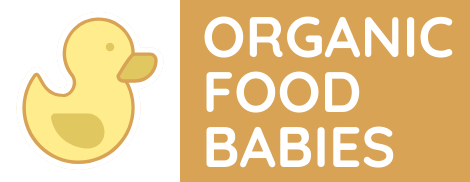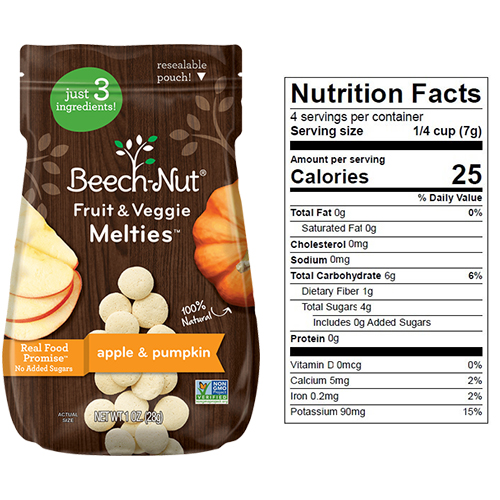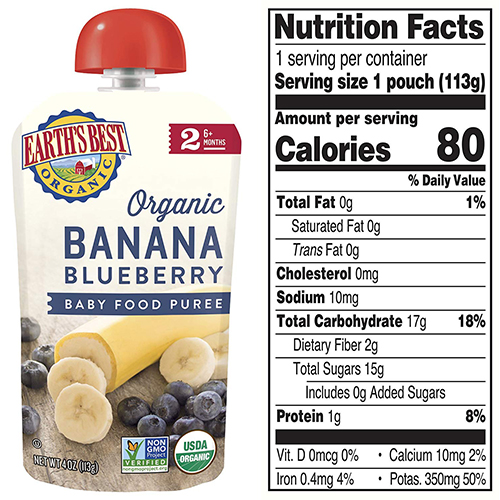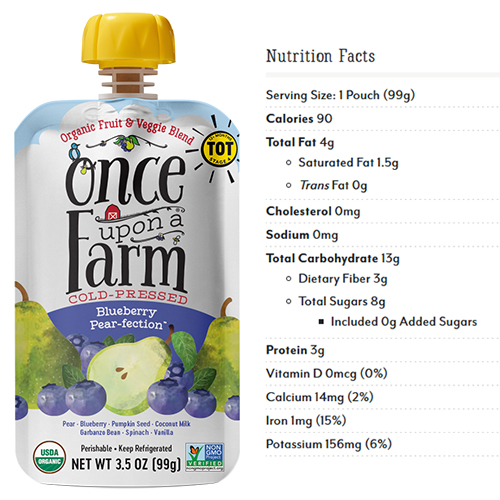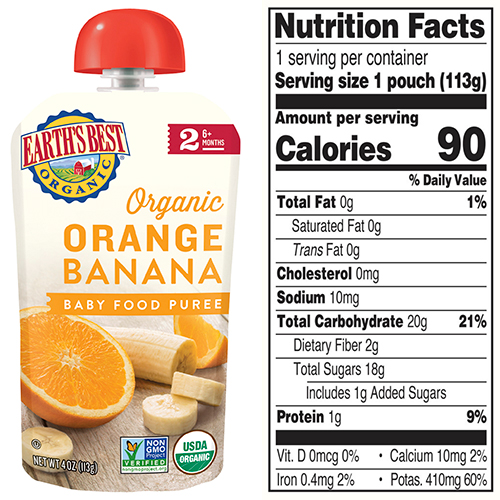


Is Organic Baby Food Healthier for Babies?
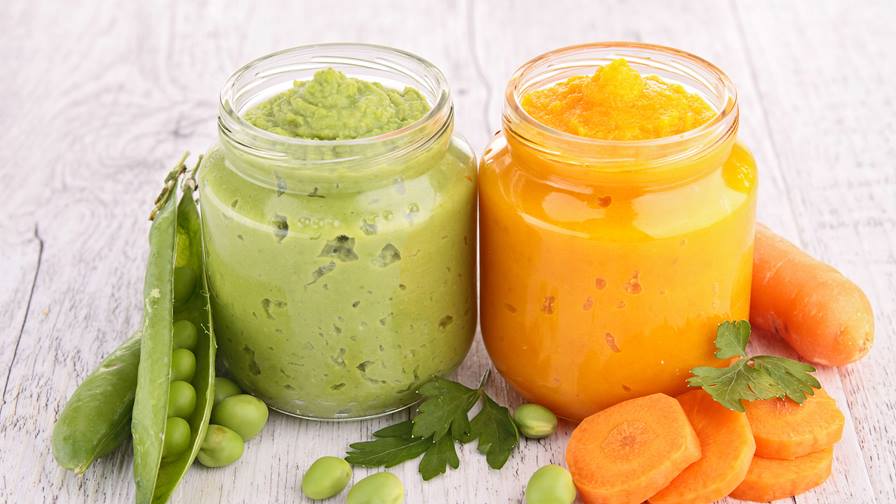
So, you’re a new parent and up until now, your baby has been content with either breast milk or formula. But now, your baby is showing an interest in the food on your plate. Once you’ve determined your baby is developmentally ready for solids (she can sit without support, doesn’t automatically push solids out of her mouth, is willing and able to chew, and is interested in food ) how do you know where to start? Since junior has far fewer teeth than you do, you begin with food that’s easier to swallow.
The baby food aisle at the grocery store is filled with an overwhelming number of options. Do you start with cereal or vegetables? Which is better for your baby: organic, conventional, or homemade baby food? To find out, I asked Amelia McBride, MS, CD, a pediatric dietitian at Intermountain Riverton Hospital in Riverton, UT, who works in Primary Children’s outpatient services.
What type of food should you feed your baby first?
As a dietitian, Amelia encourages babies to start with vegetables and then add fruits, so they learn to like vegetables, since fruits taste sweeter. “Cereal is thought to be the gold standard for introducing solids, but there’s no indication it’s better or worse than starting with other pureed foods,” says Amelia. “If you want to start with cereal, I’d recommend oatmeal, due to recent reports of high arsenic levels in rice cereal.”
Which is better for your baby: organic, conventional, or homemade baby food?
“There are pros and cons to all three types of food, but from a nutrition standpoint, organic options aren’t any more nutritious, and cost can be a barrier for some families,” says Amelia.
A Stanford University study found organic baby food may have a lower risk of pesticide contamination, but conventional baby food rarely exceeds pesticide limits set by the EPA.
“If organic production methods are important to you from an environmental standpoint, you may feel organic is worth the extra cost,” she adds. Knowing the pros and cons of organic, conventional, and homemade baby food can help you decide what to feed your baby based on your budget, lifestyle, and time constraints.
Pros and cons of commercial baby food
Pros
- Convenient, ready to use
- Doesn’t need to be prepared or refrigerated until after it’s opened
- Longer shelf life
- Met safety requirements in the preparation process
Cons
- Limited to what’s available
Are pouches or jars better?
“Pouches are convenient for just putting a small amount on the spoon, so usually there’s less waste and less mess,” says Amelia. They’re less likely to spill or break, but may cost more. “The biggest drawback is that pouches don’t help your child develop as many motor skills as using a spoon. They’re great for on the go, just don’t use them all the time,” she adds.
Jars are economical but can spill or break. They’re good to use at home when you can put food in a dish so your child can learn to use a spoon. “Once you’ve put a used spoon in the food, the saliva can contaminate the food, so throw away any food that has saliva in it,” Amelia says.
Pros and cons of non-organic commercial baby food
Pros
- Less expensive
- Wide variety
- Readily available
- Available through food assistance programs
- Food safety guidelines have been met
Cons
- Potential exposure to pesticides, but rarely exceeds pesticide limits
Pros and cons of organic commercial baby food
Pros
- Same advantages as conventional baby food
- Slightly less chance of pesticide contamination
Cons
- Limited to what’s available
- Usually more expensive
- Not available everywhere or through some food assistance programs
Pros and cons of homemade baby food
Pros
- Economical
- You can vary the texture by pureeing or mashing
- You can use what the rest of the family is eating as baby is ready for it
- You can use fresh, frozen, or canned fruits/vegetables and cooked meats
- Food that can be mashed fresh without cooking may have more nutrition than canned versions (ripe bananas, avocados, pears, etc.)
Cons
- Time commitment
- Not shelf stable. Must be refrigerated within two hours and keeps only 24-48 hours.
Do’s and don’ts for making your own baby food
Babies can be at a higher risk for food-borne illness since their immune system is still developing. Be sure your baby’s food is prepared safely with these tips:
- Wash your hands before preparing the food and feeding your baby.
- Avoid cross contamination, especially when handling raw meats.
- Cook meats to recommended temperature.
- Rinse fruits and vegetables.
- Avoid sweetening or adding salt.
- Use a hand grinder, electric grinder, blender, or food processor to puree.
- You can thin food with breast milk or formula if needed.
- You can store items that contain dairy, eggs, and cooked meat in the refrigerator for up to 24 hours and fruits and vegetables for up to 48 hours. Freeze extra food in child-sized portions and thaw in the microwave when ready to use.
- Always test heated food to make sure it’s cooled enough to feed your baby.
- When introducing a new food, wait one to two days in between servings. If you have a family history of food allergy, talk to your pediatrician.
Making a mess while eating encourages learning
As your baby gets older, add texture and let them feed themselves. Your baby will let you know when they’re full if they turn away or spit things out. “Don’t feed your baby more than they want. Follow their feeding cues,” says Amelia. Encourage a variety of foods. Different natural colors mean different vitamins. Let them experience food through the five senses. It will be exciting, fun, and messy!
Food products to avoid until your baby is at least one year old
- Honey
- Home-canned foods
- Unpasteurized dairy products (raw milk and some soft cheeses)
- Cow’s milk
If you have specific questions about how your baby is responding to food, contact your child’s doctor, pediatrician, or an Intermountain dietitian.
